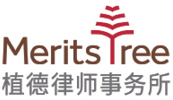The implementation of a “two-invoice system” has simplified the distribution chain of pharmaceutical enterprises. The system, involving issuing of the manufacturer’s invoice to the distributor, followed by the distributor’s invoice to the end customer (the public hospitals), restricts the splitting of expenses generated in distribution through multiple distribution parties. Pharmaceutical enterprises can only claim the related expenses by themselves if the original distribution model of selling with rebates is not changed immediately.

Partner
Merits & Tree Law Offices
Improper handling of distribution expenses by pharmaceutical enterprises, including issuing fraudulent invoices and tax evasion, has attracted regulatory scrutiny in recent years. The Ministry of Finance and the State Taxation Administration (STA) have repeatedly carried out special corrective actions against the pharmaceutical industry.
Nine ministries and commissions, including the National Health Commission, the Ministry of Public Security and the STA jointly issued the Notice on Issuing the Main Points of Correcting Unhealthy Practices in the Field of Medical Purchase and Sales and Medical Services in 2020, which emphasises the need for punitive action against the issuing of fraudulent invoices, tax evasion and other tax-related crimes during the pharmaceutical production process.
In late 2020, the Provisional Rules on Registration of Medical Representatives was implemented, which regulates the registration of pharmaceutical representatives through marketing authorisation holders. The rules will reduce the chaos in distribution from the enterprise side, and further increase the risks of pharmaceutical enterprises on tax compliance regarding distribution expenses.
Normally, there are two ways of handling distribution expenses by pharmaceutical enterprises. One way is for pharmaceutical enterprises to sell drugs to contract sales organisations (CSOs) with good supply practices at low prices, and then the CSOs sell the drugs to hospitals at higher prices. In this case, the profits would be retained by the CSOs to pay rebates to the procurement staff of hospitals and pharmacies. Usually, the CSOs would purchase several shell pharmaceutical manufacturing companies to issue VAT invoices fraudulently, and then the CSOs would get the cash from the shell companies.

Counsel
Merits & Tree Law Offices
While the simplified drug distribution process reduces concealment of distribution expenses, the model is similar to the old model, with multiple distribution parties. These shell companies have no actual business, but issue a large number of invoices. The CSOs receiving a lot of invoices without substantial business, and the illegal flow of funds, could lead to huge administrative and criminal risks to pharmaceutical enterprises.
The second way is selling drugs to CSOs and hospitals both at high prices. The pharmaceutical enterprises handle the distribution expenses by purchasing professional consulting and technology promotion services from commercial service providers (CSPs).
The model seems good, but in many cases the CSPs don’t have the ability to provide the relevant services. Sometimes, they don’t even have offices and staff. The CSPs issue the pharmaceutical companies with invoices and charge them service fees by getting invoices from these sole proprietorship enterprises, which usually were established in zones, and enjoy preferential policies through levy by assessment and financial rebate. Thus, the CSPs can complete the invoice flow and capital flow, and earn the money.
There are, however, loopholes in this seemingly compliant model. For example, the CSPs and sole proprietorship enterprises are always under the same actual controller, the pharmaceutical representatives. The pharmaceutical enterprises don’t examine the services provided by the CSPs, and the contractual basis has nothing to do with the services but with drug distribution. The funds flow through pharmaceutical enterprises to CSPs, then to sole proprietorship enterprises, and eventually to procurement staff of hospitals and pharmacies.
No matter in what form the distribution expenses of pharmaceutical enterprises are handled, the pre-tax deduction vouchers should follow the principles of authenticity, legality and relevance as the basis for cost deduction, according to the tax laws. Under these principles, only reasonable expenses actually incurred, related to the income, can be deducted.
In this context, authenticity means that the business reflected by the pre-tax deduction vouchers is real, and expenses are incurred. Legality means that the form and source of the pre-tax deduction vouchers conform to the relevant laws and regulations, and relevance means that the pre-tax deduction vouchers can reflect the expenses in a concrete way.
If the vouchers do not comply with the laws, administrative regulations, or the relevant provisions of the taxation authorities under the State Council, the input tax shall not be deducted from the output tax, and relevant expenses shall not be deducted in the calculation of taxable income. At the same time, late payment fees may be imposed on the enterprises, and they may be fined, from 50% of to five times the tax owed. In more serious cases, it may be suspected of crimes of tax evasion, and fraudulent invoicing of VAT invoices and regular invoices. Therefore, pharmaceutical enterprises must pay attention to the tax compliance risk of distribution expenses.
The following are some suggestions concerning tax compliance for pharmaceutical enterprises’ distribution expense processing.
First, the enterprises should keep the documents that can prove the actual performance of the contract properly, such as contracts, invoices, bank receipts and payments, expense reimbursement forms, vouchers, and direction of goods flow.
Second, for meeting expenses, the enterprises should keep documents such as meeting name, time and place, participant’s list, agenda, discussion materials, on-site photos and invoices. The documents should be corroborated with the actual situation and other material.
Third, for accommodation, travel and hospitality expenses, the enterprises should pay attention to retaining the supporting material regarding personnel applying for reimbursement, time, place, reasons, invoices, lists and other relevant matters.
Fourth, pharmaceutical enterprises are allowed to deduct advertising and business promotion expenses not exceeding 30% of the sales revenue of the year. The excess may be carried forward to future years for deduction.
After the two-invoice system and the registration of medical representatives, marketing authorisation holders, CSOs and CSPs are facing more strict financial compliance requirements. Pharmaceutical enterprises must strengthen their financial and tax compliance requirements, and study relevant laws and regulations, to ensure the healthy development of the enterprise in compliance with laws.
Zhang Guohao is a partner and Xu Jing is a counsel at Merits & Tree Law Offices

Merits & Tree Law Offices
5/F, Raffles City Beijing Office Tower
No.1 Dongzhimen South Street
Dongcheng District, Beijing 100007, China
Tel: +86 21 52533501
E-mail:
guohao.zhang@meritsandtree.com





















